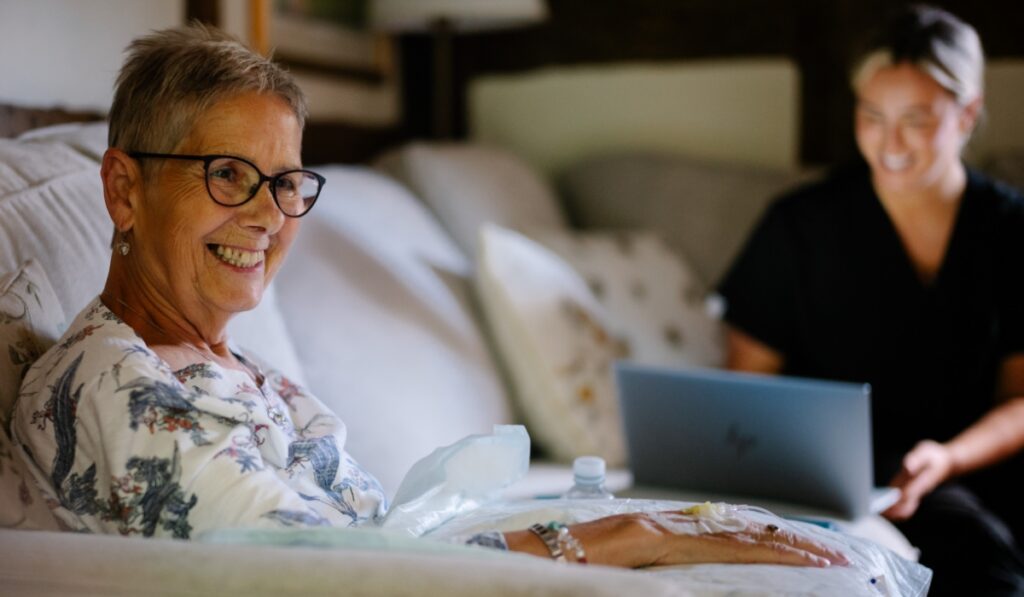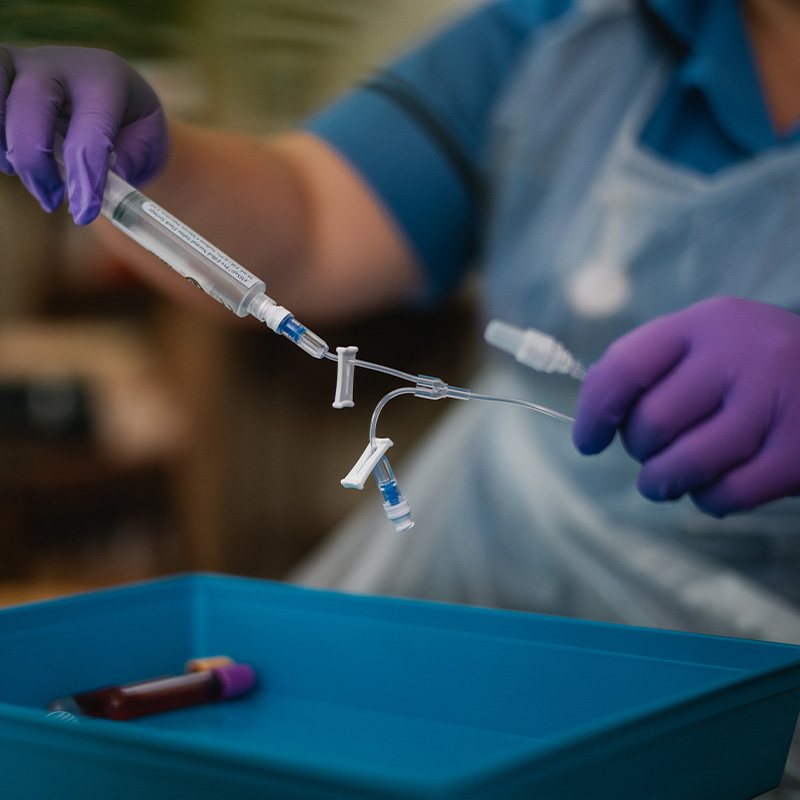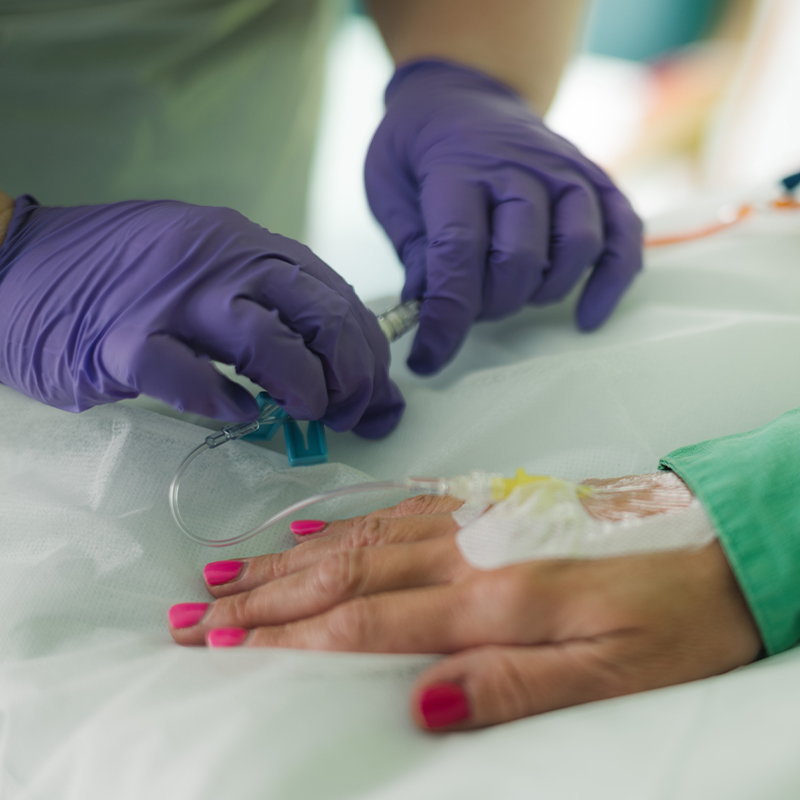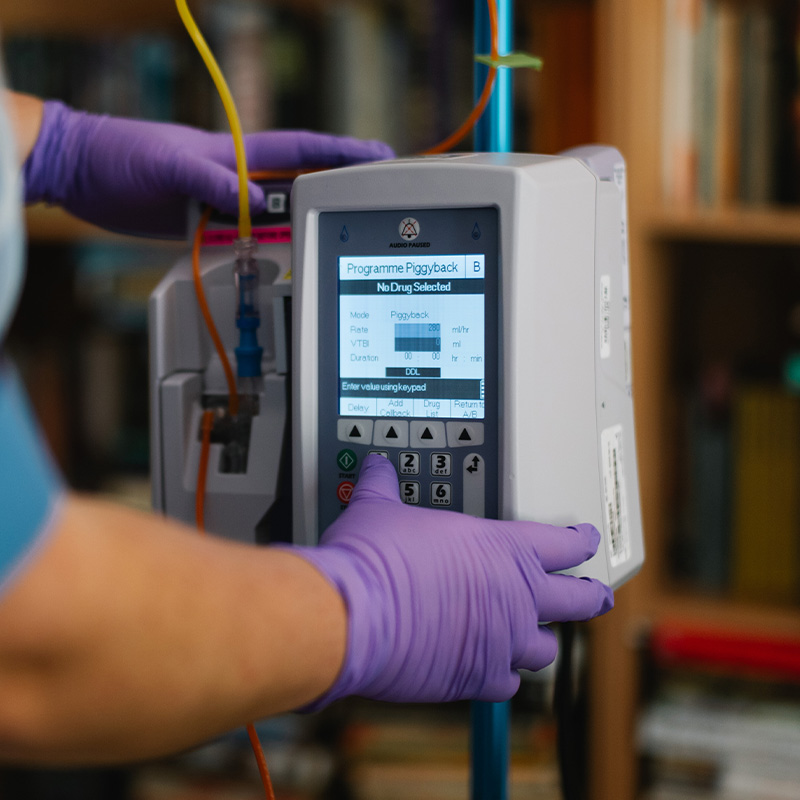Your guide to breast cancer treatment
A breast cancer diagnosis can be overwhelming. Rest assured, you’re not alone, and there are many options for managing the condition and tailoring treatment to suit your individual needs.
Each year, approximately 55,000 women in the UK are diagnosed with breast cancer, making it the most common cancer affecting women. Breast cancer also occurs in men with symptoms including a lump or swelling in the chest or armpit, liquid leaking from the nipple and changes in the size or shape of either side of the chest. Understanding your condition is the first step toward taking control of your journey.
Our guide is here to help you understand private breast cancer treatment and the main treatment options available.
Frequently asked questions about breast cancer
What is breast cancer?
Breast cancer occurs when cancerous cells develop in breast tissue, typically starting in the milk ducts or surrounding breast tissue. These cancer cells grow uncontrollably and can spread to nearby lymph nodes or other parts of the body if not treated promptly. Most breast cancers begin in the ducts that carry milk to the nipple, whilst others start in the glands that produce breast milk.
What are the symptoms of breast cancer?
Recognising the symptoms of breast cancer early significantly improves treatment outcomes:
- Breast lumps: Any new lump or thickening in breast tissue should be examined by a healthcare professional. Most breast lumps are benign, but it’s essential to have them checked
- Changes in breast skin: Look for dimpling, puckering, or changes in breast skin texture
- Nipple changes: Discharge from the nipple, inversion, or changes in nipple appearance
- Breast shape changes: Noticeable alterations in breast shape or size
- Persistent breast or bone pain: Unexplained discomfort that doesn’t resolve
Remember that many breast cancer cases are detected through routine breast screening before symptoms appear. Regular self-examination and participating in NHS breast screening programmes when eligible are crucial for early detection.
What causes breast cancer?
Multiple risk factors contribute to developing breast cancer. Key factors that increase breast cancer risk include:
Age and gender: Breast cancer risk increases with age, particularly after menopause.
Family history: Having a family history of breast cancer, particularly in close relatives, can increase your risk.
Lifestyle factors: Not maintaining a healthy weight, heavy alcohol consumption, and being physically inactive can increase breast cancer risk.
Reproductive history: Factors such as age at first menstruation, menopause timing, and reproductive history can affect hormone levels and breast cancer development.
What are the treatment options for breast cancer treatment?
Breast cancer treatment depends on several factors, including the stage of cancer, breast cancer subtypes and your overall health. Treatment options include:
Surgery: Most patients undergo breast cancer surgery, either breast-conserving surgery or mastectomy.
Chemotherapy: Used to destroy cancer cells throughout the body, chemotherapy can be given before surgery to shrink tumours or after surgery to eliminate remaining cancer cells.
Hormone therapy: For hormone receptor-positive breast cancers, hormone therapy blocks hormones that fuel cancer growth.
Radiation therapy: High-energy beams target and destroy cancer cells in the treated area, often used after breast-conserving surgery.
Targeted therapy: These treatments specifically target certain characteristics of cancer cells, particularly effective for HER2-positive breast cancers.
How much does private breast cancer treatment cost?
Private breast cancer treatment costs vary significantly based on the specific treatments required and your location in the UK. Treatment expenses typically include:
- Initial consultations and diagnostic tests
- Surgical procedures and hospital stays
- Ongoing therapy sessions
- Medication and supportive care costs
Many private medical insurance policies cover breast cancer treatment, though coverage levels vary. Self-paying patients should expect costs to range from several thousand pounds for basic treatment to significantly more for comprehensive care including surgery and extended therapy.
Can you get breast cancer treatment at home?
Yes, many breast cancer treatments can be safely administered at home, offering significant advantages for patients and families.
Chemotherapy at home: Many chemotherapy regimens can be delivered in your home environment by qualified oncology nurses, removing the need for frequent hospital visits.
Supportive care: Pain management, anti-nausea medications, and other supportive treatments can often be managed at home with proper medical supervision.
Monitoring and follow-up: Regular health assessments and treatment monitoring can be conducted in your home, providing convenience whilst maintaining clinical excellence.
Recovery support: Post-surgical care and rehabilitation can often be managed more comfortably at home with specialist nursing support.
We know the benefits of cancer care at home
Our specialist cancer services ensure private medically insured and self-paying patients who want an alternative to hospital can start their treatment faster. We consider all cancer treatments, including those not currently available in hospitals.

Looking for more information?
We’ve worked with thousands of patients, and we know you’ll have a lot of questions.
If you’re ready to talk to us to discuss your options, fill out the form below and we’ll be in touch quickly.
If your enquiry is urgent please call 0345 2636 123 (England and Wales) or 0345 2636 135 (Northern Ireland and Scotland).


